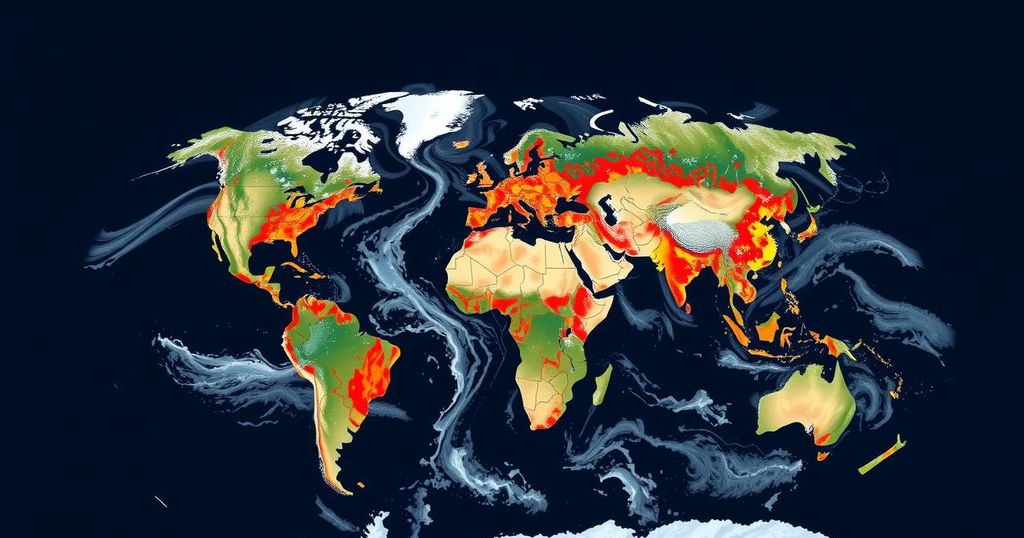How Climate Change Intensifies Extreme Weather: Insights from Carbon Brief’s Mapping

Carbon Brief’s interactive map illustrates how climate change has influenced severe weather events, documenting over 600 studies that indicate 74% of extreme weather occurrences have been intensified by human-caused climate change. Researchers highlight disparities in event attribution studies predominantly favoring the Global North, with calls for broader inclusion of global data. The continuous evolution of attribution science enhances the understanding of socio-economic impacts, emphasizing the importance of climate awareness and preparedness.
In 2004, researchers pioneered a method to assess the human contribution to extreme weather events, focusing on the devastating 2003 European heatwave that claimed over 70,000 lives. This work laid the groundwork for the field of “extreme event attribution,” which quantifies the extent to which climate change influences the intensity and frequency of various extreme weather occurrences. As of November 2024, Carbon Brief has compiled a comprehensive map featuring over 600 attribution studies related to nearly 750 extreme weather events, revealing that 74% of these events were exacerbated by climate change. Furthermore, 83% of the documented extremes experienced some level of influence from human-caused climate change, with particular emphasis on heatwaves, floods, and droughts. Although just 9% of the events showed a decrease in severity due to climate change, this categorization mainly encompasses cold extremes and certain heavy rain scenarios in specific regions. This interactive map not only illustrates the geographical distribution of extremes impacted by climate change but also allows for in-depth exploration of individual events across various global regions. Most of the analyzed extremes are rooted in the Global North, particularly in Europe and North America, highlighting a disparity in research focus that attribution scientists are working to correct. The innovation of rapid attribution studies since 2015 has enabled immediate assessments of extreme weather events, enhancing public understanding of the connection between climate change and weather patterns. As scientists continue to refine their methods, the importance of understanding the socio-economic impacts of climate change on weather extremes has gained recognition, prompting significant research developments in recent years. Overall, the evidence increasingly confirms that human-driven climate change significantly alters the probability and severity of extreme weather events around the globe, signifying an urgent need for awareness, preparedness, and appropriate response strategies.
In the early 2000s, the concept of attributing extreme weather events to climate change was introduced, marking a pivotal moment in climatology. The landmark study in 2004 set the stage for subsequent research, establishing a framework for how climate science could quantify human impacts on specific meteorological events. The growing body of research in this domain underscores the significant influence of climate change, revealing that a remarkable percentage of weather extremes are now attributed to human activities. The increasing use of sophisticated modeling techniques and a focus on immediate assessments has amplified understanding of these phenomena, contributing to the importance of climate policy and community resilience planning.
The assessment of extreme weather attributed to climate change has reached a critical juncture, with over three-quarters of analyzed events demonstrating an increased likelihood or severity due to human influence. The interactive map compiled by Carbon Brief serves as an invaluable tool for understanding the extent of this impact across the globe, although it also reveals disparities in research focus that require further attention. As meteorological extremes continue to intensify, the need for informed action and enhanced preparedness in response to these events remains paramount, underscoring the urgency of addressing climate change comprehensively.
Original Source: www.carbonbrief.org






